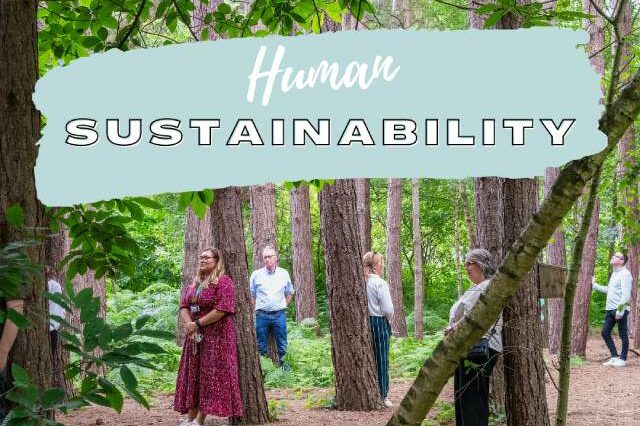While the focus on environmental sustainability is gaining momentum, another critical crisis—human sustainability—remains largely overlooked, especially in the events industry. As we work to protect the planet, we must also prioritise the well-being of those attending, planning, and executing events. The rise in burnout, chronic illnesses, and mental health challenges indicates that we are facing a precarious situation, one that endangers not only our environment but the very people we aim to engage and inspire through events. Lucy Eden, founder of Be in your Element talked to PA Life about her concerns and offers advice on immediate remedies…
The statistics present a sobering reality
Burnout is at epidemic levels. In 2019, the World Health Organisation recognised it as a syndrome. A Gallup report reveals that 76% of employees experience burnout, with 28% nearing a breaking point—figures that are particularly concerning for the high-stress, fast-paced events industry.
Mental health is deteriorating across the board, with global rates of depression and anxiety surging by 25% since the pandemic, according to the WHO. For event professionals and participants alike, this decline is increasingly evident as demands and pressures continue to grow.
Stress-related illnesses account for 75-90% of doctor visits, as reported by the American Institute of Stress. Chronic stress is linked to severe health conditions like heart disease and stroke, risks that are particularly heightened in industries that prioritise non-stop productivity over well-being.
Human sustainability crisis is felt in the events industry
These alarming figures are a wake-up call. The events industry, in particular, is feeling the strain of this human sustainability crisis. If we continue to neglect the health and well-being of those involved in creating and attending events, we risk exacerbating burnout, stress, and illness on a large scale.
Just as the industry has embraced eco-friendly initiatives and reduced carbon footprints, it must also rethink how to sustain its workforce and audiences. Prioritising well-being is no longer optional—it’s essential. Without a healthy, thriving population, all other sustainability efforts risk becoming inconsequential.
How we can immediately support human sustainability
To address this crisis, the events industry must take concrete steps toward supporting human sustainability.
Here are some practical changes we always suggest to our clients that you can implemented immediately:
Embed well-being into event design
Just as eco-friendly practices are integrated into event planning; well-being must be part of the blueprint. From offering wellness breaks and relaxation zones to incorporating mindfulness activities or physical movement, events can be integral to a more balanced and restorative experience.
Create realistic timelines and expectations
Event professionals often operate under tight deadlines, leading to high levels of stress. By setting more realistic timelines and providing adequate resources, event teams can reduce burnout. Prioritising work-life balance—through flexible schedules or mental health days—can help ensure sustained productivity without sacrificing well-being.
Prioritise mental health support
Providing access to mental health resources, both for staff and attendees, can make a significant difference. This could include offering free or subsidised counselling, mindfulness apps, or even mental health workshops as part of event programming. Provide training, such as mental health first aid training for staff in the workplace and also to support on events. For staff, establishing a culture where seeking help is encouraged is essential.
Rethink event pacing
Jam-packed schedules and back-to-back sessions leave little room for reflection or relaxation. We should design events with intentional breaks, downtime, and spaces for informal networking to alleviate pressure on attendees and staff alike.
Promote sustainable work practices behind the scenes
The well-being of event staff and suppliers is as crucial as that of attendees. Encouraging remote work where feasible, shorter meetings, and task-sharing systems can help distribute workload more evenly, preventing burnout among event teams.
Champion well-being as a core value
Human sustainability should be positioned alongside environmental sustainability in every even, from conception to de brief. By creating this open conversation about the importance of well-being in all communications, the events industry can set a precedent for human-centred practices.
These actions will help shift the focus from just delivering an event to delivering an experience that values and supports the people behind and within it. By embedding human sustainability into the DNA of events, we will ensure that both the planet and its inhabitants thrive together.
You’ll also find Lucy’s excellent article on incorporating wellness into your events in PA Life.















